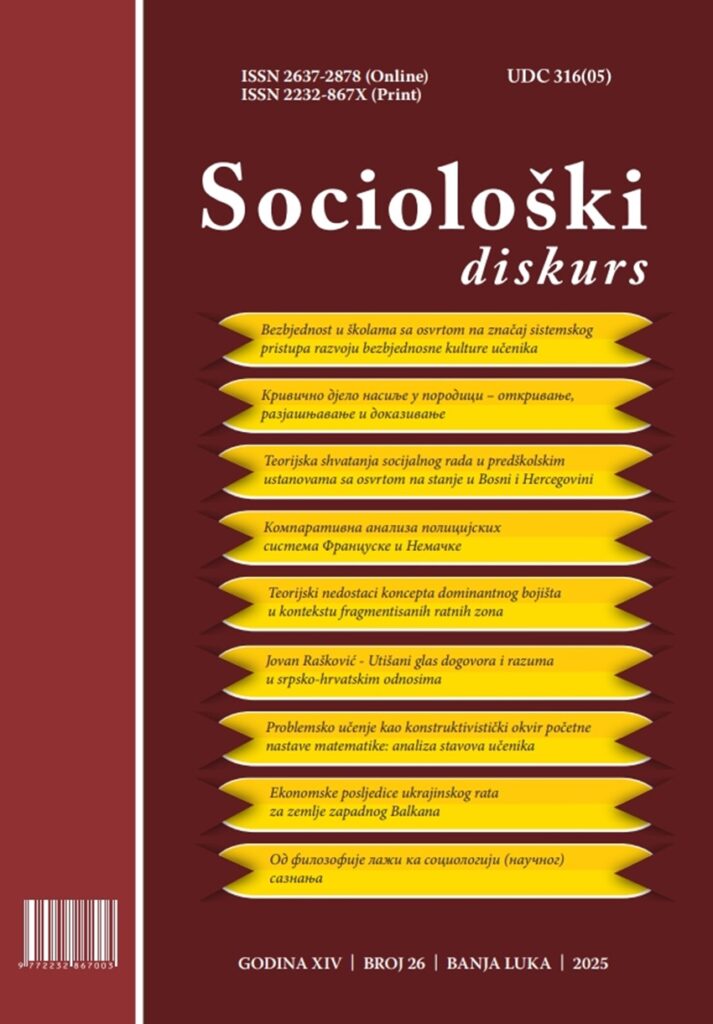COMPARATIVE ANALYSIS OF POLICE SYSTEMS IN FRANCE AND GERMANY
DOI:
https://doi.org/10.7251/SOCEN2526065SAbstract
The functionality of the police system is important for all countries in the world. Primarily, states strive to establish a more functional police system that will successfully provide citizens with security services. What the model of the police system in a country will look like is a reflection of numerous factors - historical and current, subjective and objective, legal and customary, formal and material, external and internal. Taking everything into account, it can be said that one of the most important factors is the territorial organization of the state. The police system of a modern state should be organized according to a model that will enable adequate protection of the state and its citizens from all challenges, risks and threats. In this paper, we will try to look at the way in which the police systems of France and Germany are organized, one of which is very simple and the other is complex. For this purpose, a methodological framework was applied in the form of a study of the existing scientific and professional literature, as well as an analysis of research papers dealing with issues of genesis and comparative analysis of the model of police systems of a modern state. Content analysis methods, historical method and comparative method will be used in the work. Based on the aforementioned methodological basis, the paper will present the basic characteristics of the police systems of two large European, neighboring countries, with rich traditions of police development and police science. After that, their police systems will be analyzed using a comparative method, with the aim of seeing the similarities and differences, that is, the advantages and disadvantages of each model.
